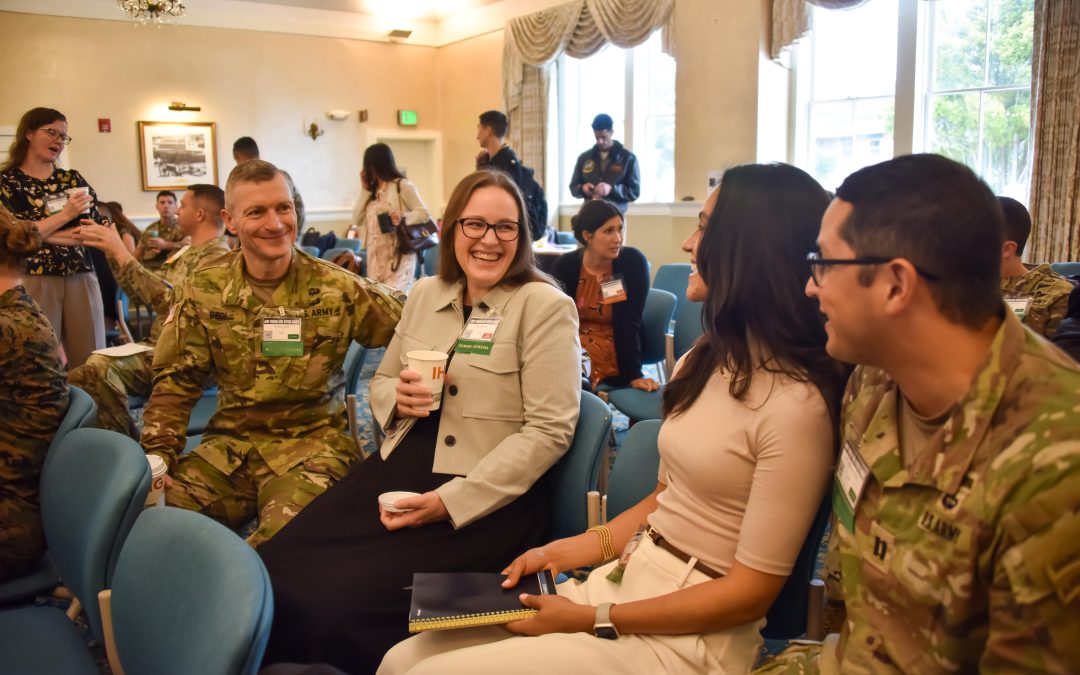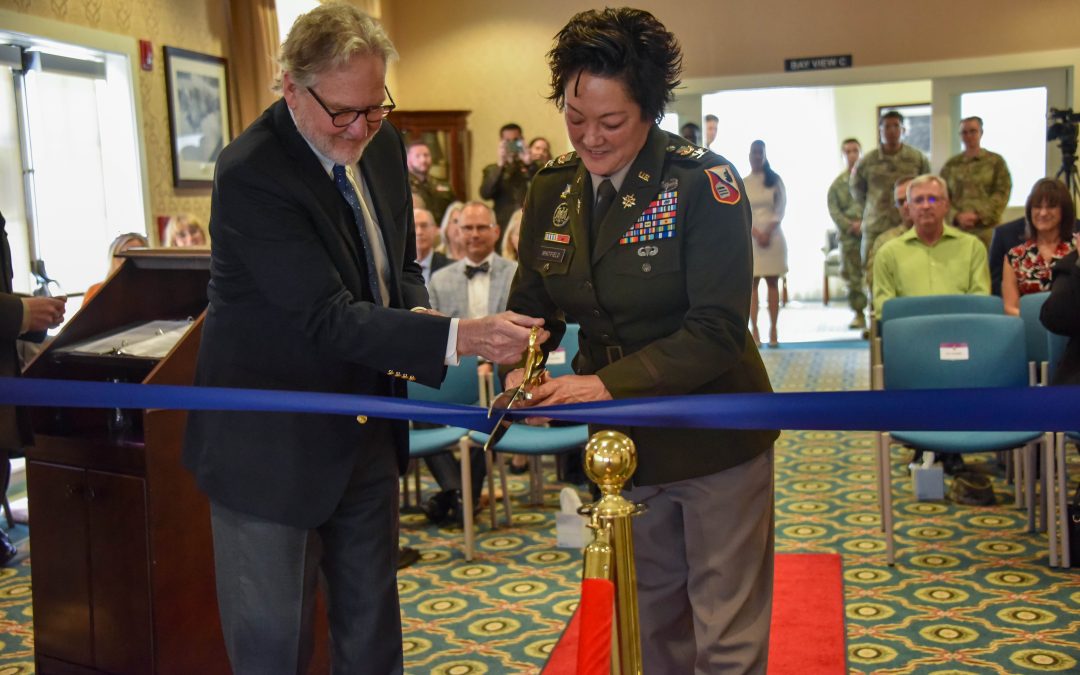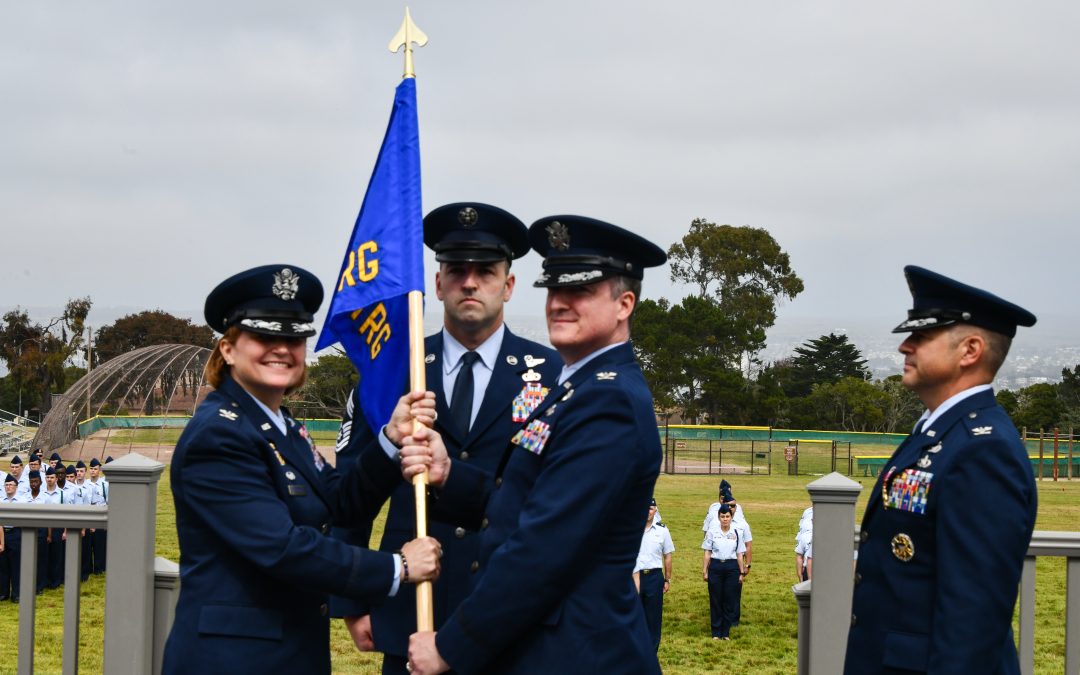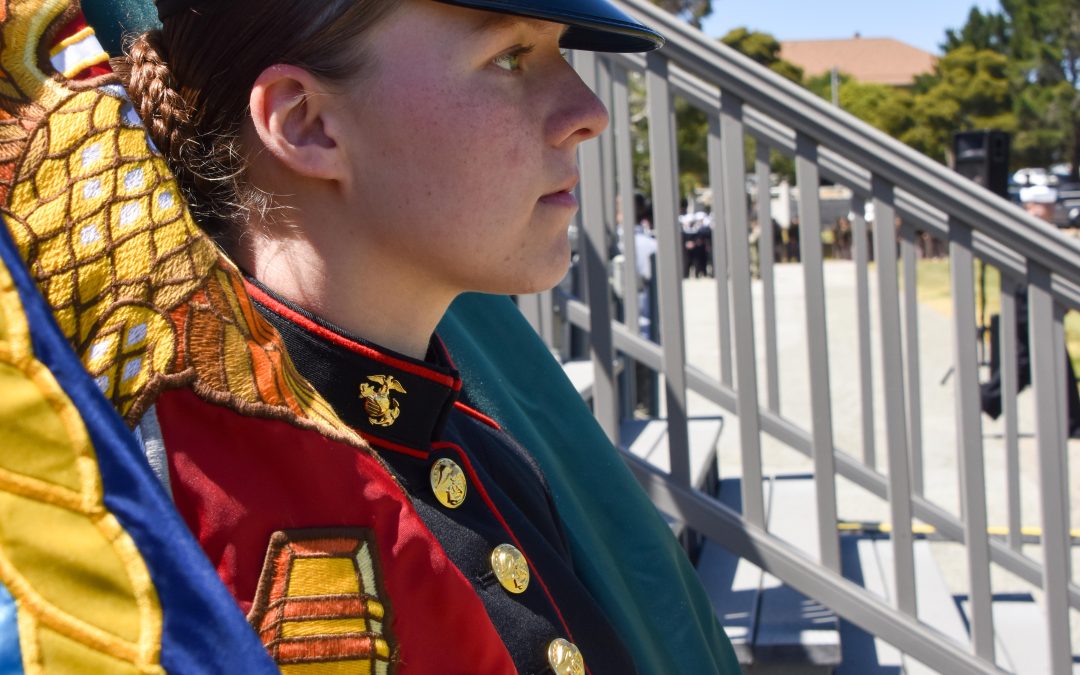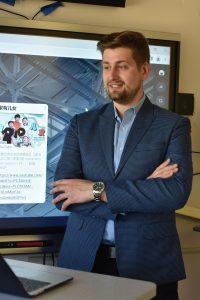
Dr. Nikita Kuzmin teaches his class with passion and vigor
In the halls of the Defense Language Institute Foreign Language Center in Monterey, California, you’ll find an unassuming figure whose passion for languages has shaped an extraordinary journey.
“I learned English as my first foreign language in kindergarten and continued it with my studies at school,” said Dr. Nikita Kuzmin, a Russian-born national raised in Moscow amidst the twilight of the Soviet Union.
His story, marked by personal challenges and academic triumphs, offers a vivid tableau of the power of language in connecting worlds apart. Raised by a mother who had served in administrative roles for the Russian Army, Kuzmin’s childhood bore little indication of his future linguistic prowess.
“Despite my education in English, my family has only Russian [in our] background. We don’t have any foreign heritage,” he said.
What began as child’s subject continued throughout his schooling as Kuzmin, admittedly not a “math whiz,” gravitated towards the humanities. However, he understood the value of a challenge.
“I liked setting goals and achieving them,” he recalled. But his childhood fascination with history and an innate love for challenges converged unexpectedly
. He built a self-curated museum, crafted out of his family’s old possessions, feeding an insatiable curiosity about the past, even going as far as giving lectures on the “antiquities” he’d displayed.
Kuzmin’s admiration for history and quest for new challenges led him to the Chinese language; one as complex as it is rich in historical significance. Reaching the end of his high school career, he saw mastering a foreign language as not just a communication tool, but a marketable skillset as well.
“In Russia, if you master a foreign language, it is very much a skill. You can be a teacher or a translator,” he said. “And I wanted to do something practical, something real.”
It was this pragmatic approach to education that led Kuzmin to a crossroads in his late teens. Western languages like English, German and French presented little allure; they lacked the challenge he craved.
“Russian and Chinese relations were strong, with student exchanges common. I thought why not Chinese?” His choice was timely; the mayor of Moscow had just introduced East Asian languages into the school system and Kuzmin found a program that combined linguistic rigor with informative training.
Shrouded in its deep cultural traditions and steeped in intertwining history, Chinese both fed his love of history and his passion for learning.
Navigating a succession of academic challenges, his quest commenced in Moscow where he earned an undergraduate degree in the theory and methods of teaching foreign languages. He continued his scholarly pursuit, dedicating three years of study in literature and linguistics in China. Afterwards, Kuzmin relocated to Germany to embark on a graduate degree in Sinology, culminating in a Ph.D. from the University of Pennsylvania in East Asian Languages and Civilizations.
“I wanted to become a professor,” Kuzmin affirmed. “With the field being so competitive, though, I needed to go where the best Ph.D. programs were and that’s how I came to the United States.”
His postgraduate job search led him to DLIFLC, where he now teaches Chinese to U.S. service members. “It’s my first job as a teacher,” he says with a hint of pride. “I use my knowledge, my background, to benefit them and this is how I can contribute [to their education].”
Though the path to this role was unorthodox, seeing a Russian national teaching Chinese to American Soldiers, Kuzmin sees it as a fitting testament to his belief in the unifying power of learning the complexities of not just the technicalities of a language, but also unearthing its culture.
“I [try to] educate them on how a foreigner would look at certain things in China, having been there for three years myself. I didn’t stay with expats, I wanted to explore, speak with people. You need to be fearless, take in the hustle and bustle,” he explains. “And though we are not Chinese, only then can we respect the culture and truly learn.”

Kuzmin studying in Hong Kong
Kuzmin’s journey underscores the importance of language education, particularly in the realm of national security and international relations. He dispels the upcoming notion that artificial intelligence or technology could ever replace the nuance and depth of human language acquisition.
“The goal is to prevent something terrible from happening,” he asserts. “Understanding this cultural component can be the key to stopping terrible things from happening. And a computer can’t do that.”
As for the future, Kuzmin envisions continuing his role in promoting cross-cultural understanding and is loving his position at DLIFLC.
“Language learning is about enjoyment and connection. It’s about understanding that, at our core, all human beings are the same,” he beamed.

